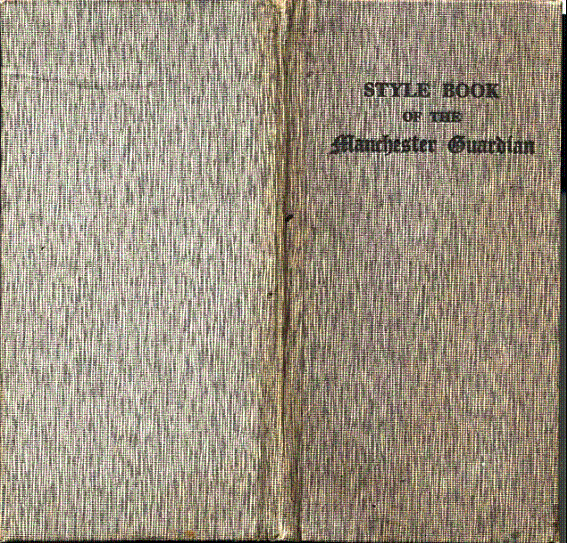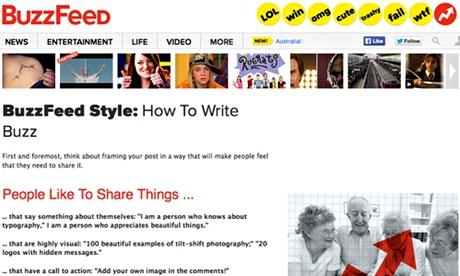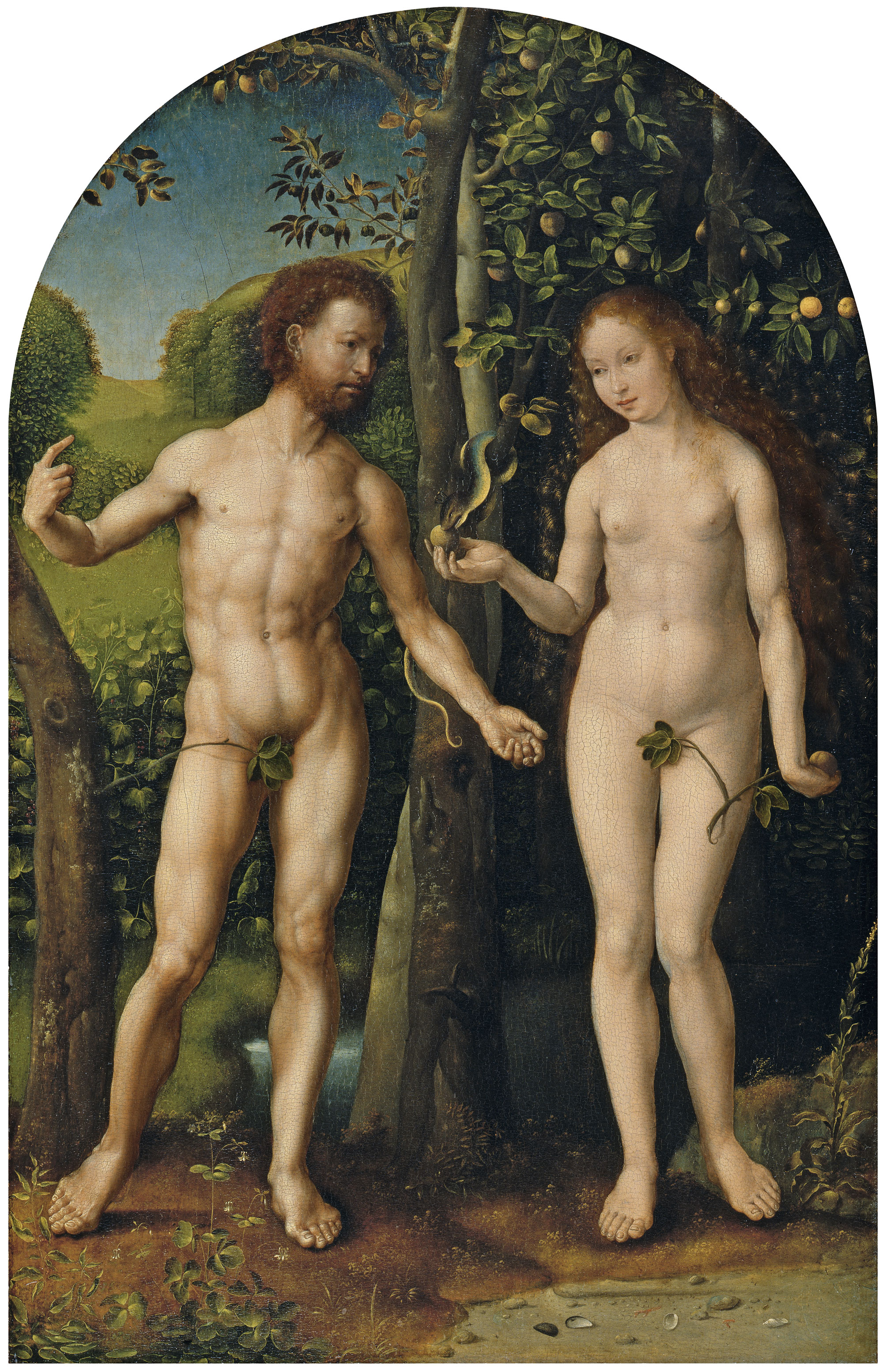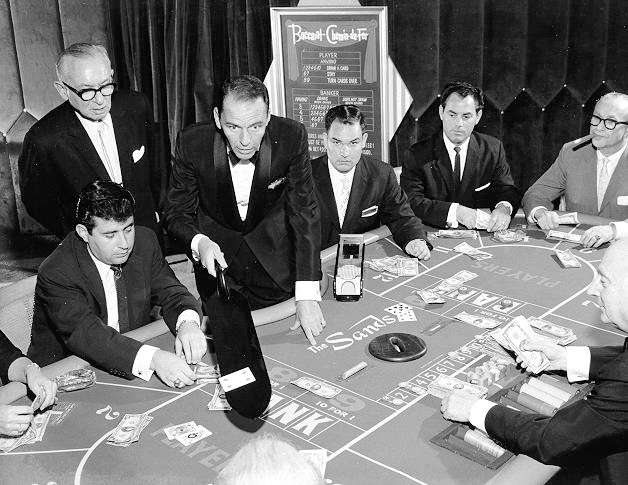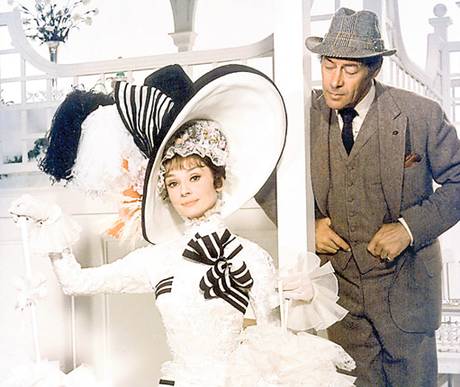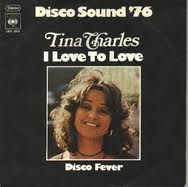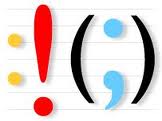“Style guide editors are insecure people who show their need to be loved by wanting everyone to speak, spell and write just like them. Or so I read somewhere.” So said David Marsh, who edits The Guardian‘s style guide, with his tongue firmly in his cheek. But I think there might be a tiny grain of truth to his claim …
Even though we English-speakers all share the same language, it’s wonderful to see how many organizations lay down their own strict rules and regulations about how it should be used — and to watch how seriously and authoritatively these laws of the proverbial land are protected, defended, and monitored, even in the most unlikely of places. Like Buzzfeed, the social media giant, which published its style guide last month to the world’s great surprise and amusement. I mean, in what other list of words and expressions would you find these entries rubbing up against each other: “bandmates, Bashar al-Assad, batshit” … “Hoodie, hook-up (n.), hook up (v.), Hosni Mubarak” … “Mixtape, mmm hmm, M.O., Muammar al-Qaddafi”??
In the U.S., most journalists and media professionals follow the AP Stylebook, whereas non-journalist professionals tend to look to The Chicago Manual of Style for their language guidance. Brits often defer to Oxford (University Press and Dictionaries): that’s where they got their so-called Oxford comma. Scholars and academics consult the MLA Style Manual and Guide to Scholarly Publishing, and a classic and popular style guide for the general public is The Elements of Style by Strunk and White, known more colloquially by the names of its authors. The world’s important newspapers each have their own set of rules — and they often disagree with each other and with the authoritative style guides on the most basic principles. For example, the New York Times‘s Manual of Style and Usage differs from the AP Stylebook on at least these two points: the “Grey Lady” uses an apostrophe + s after an s for possessives; AP style doesn’t. The former allows the use of the word over when referring to numbers and amounts: AP doesn’t.
Here are some examples, tips, and words of wisdom from some of the world’s great language guides, as well as some links to style guides that you might be surprised to know even existed …
Style guides on Twitter:
The Guardian’s style guide: “expatriate: often misspelt as ex-patriot, ex-pat, or ex-patriate. But this is ex meaning “out of” (cf export), not ex- as in “former”.
AP Stylebook: “AP Style tip: It’s dis, dissing, dissed.”
Chicago Manual of Style: “Tip: Don’t use an en dash in place of the word “to” if the pair is preceded by “from” (from 1906 to 2013 not from 1906–2013)”
* * *
The Economist‘s style guide
1. Never use a Metaphor, simile or other figure of speech which you are used to seeing in print.
2. Never use a long word where a short one will do (see Short words).
3. If it is possible to cut out a word, always cut it out (see Unnecessary words).
4. Never use the Passive where you can use the active.
5. Never use a foreign phrase, a scientific word or a Jargon word if you can think of an everyday English equivalent.
6. Break any of these rules sooner than say anything outright barbarous (see Iconoclasm).
* * *
You can see a copy of The Guardian‘s original style guide, published in 1928; a particularly nice touch is its three sections devoted respectively to Cricket, Football and House Servants …
* * *
The UK government’s digital service style guide: it advises writers to be
- brisk but not terse
- incisive (friendliness can lead to a lack of precision and unnecessary words) – but remain human (not a faceless machine)
- serious but not pompous
- emotionless – adjectives can be subjective and make the text sound more emotive and like spin
* * *
The U.S. Navy‘s style guide:
“aboard vs. on board – These two terms mean nearly the same thing and in some uses are interchangeable. “Aboard” is the preferred usage. Use “on board” as two words, but hyphenate on board when used as an adjective. “Aboard” means on board, on, in or into a ship.
The crew is aboard the ship.
An on-board medical team uses the on-board computer.
BUT NOT: The Sailor is going on board the ship.
Also, a Sailor is stationed “on,” “at,” “is serving with” or “is assigned to” a ship. A Sailor does not serve “in” a ship.
A ship is “based at” or “homeported at” a specific place. A plane is “stationed at” or is “aboard” a ship; is “deployed with” or is “operating from” a ship. Squadrons are “stationed at” air stations. Air wings are “deployed with” ships”
* * *
The Solicitor General‘s Style Guide:
“Italicize true Latin terms like a fortiori, infra, and supra. Also italicize e.g. and i.e. But no italics for Anglicized (in other words, familiar) Latin terms like certiorari, per se, pro se, and status quo.”
“Pleaded” or “pled”? Pleaded: “Petitioner pleaded guilty.”
* * *
The Associated Press issued a Winter Games style guide for editors at its member news organizations. “Within stories, lowercase the events: e.g., halfpipe, men’s downhill, women’s slalom, men’s figure skating, women’s luge, two-man bobsled, men’s skeleton.”
* * *
The U.S. Government Printing Office Style Manual, published since 1894, is a guide to the style and form of Federal Government printing. There’s no better guide to the use of the em-dash, in my opinion. (See page 204.)
* * *
GLAAD‘s Media Reference Guide – a transgender glossary of terms for journalists.
Transgender An umbrella term (adj.) for people whose gender identity and/or gender expression differs from the sex they were assigned at birth. The term may include but is not limited to: transsexuals, cross-dressers and other gender-variant people. Transgender people may identify as female-to-male (FTM) or male-to-female (MTF). Use the descriptive term (transgender, transsexual, cross-dresser, FTM or MTF) preferred by the individual. Transgender people may or may not decide to alter their bodies hormonally and/or surgically.
Transsexual (also Transexual) An older term which originated in the medical and psychological communities. While some transsexual people still prefer to use the term to describe themselves, many transgender people prefer the term transgender to transsexual. Unlike transgender, transsexual is not an umbrella term, as many transgender people do not identify as transsexual. It is best to ask which term an individual prefers.
* * *
The Church of Jesus Christ of Latter-Day Saints‘ Style Guide for the name of the church. “While the term “Mormon Church” has long been publicly applied to the Church as a nickname, it is not an authorized title, and the Church discourages its use.”

